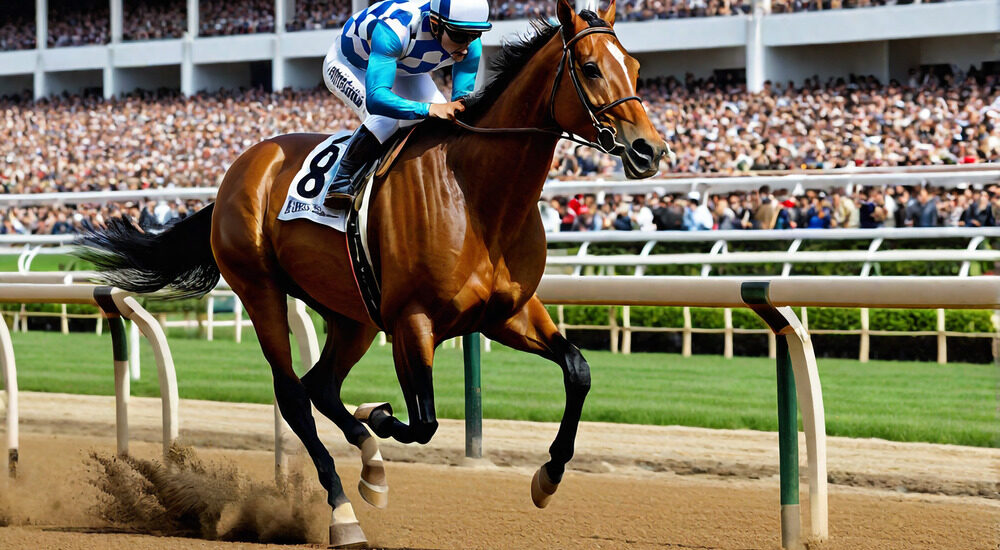In winning distance betting in horse racing, the objective is not only to select the winning horse but also to predict the margin by which it will win. This type of betting requires a comprehensive evaluation of various factors influencing a horse’s performance. Important considerations include the horse’s speed, stamina, and adaptability to different track conditions. Additionally, the jockey’s skill and the length of the race can significantly affect the outcome.
To develop an effective strategy for this form of betting, it is crucial to analyze historical performance data of the horses involved, as well as track-specific statistics. Understanding the typical performance patterns under similar conditions can help in making more informed predictions.
Furthermore, evaluating the competition’s strengths and weaknesses can provide insights into potential winning margins.
Ultimately, mastering winning distance betting involves a methodical approach to assessing all available data, minimizing risks, and optimizing potential returns. By focusing on these elements, bettors can transition from casual to more strategic betting practices.
Basics of Winning Distance Betting
Winning distance betting is a form of wagering in horse racing that involves predicting the margin by which a horse will win. Unlike traditional betting, where the focus is on selecting the winning horse, distance betting requires estimating the number of lengths the horse will finish ahead of its closest competitor. This type of bet adds complexity because it involves not only identifying the winner but also determining the precise winning margin.
In this context, understanding the terminology is crucial. Horse races use “lengths” as a unit of measurement to describe the distance between horses. A length is approximately the length of a horse, roughly eight feet.
Common betting options include “by a nose,” “by one length,” or “by more than five lengths.” This demands careful observation and strategic analysis, making it an intriguing aspect of horse racing.
Analyzing Horse Performance
Evaluating horse performance is important for making informed decisions in distance betting. It involves a thorough analysis of a horse’s previous performances, with particular attention to speed, stamina, and consistency.
Reviewing past races to identify distances where the horse performed well is essential. Additionally, examining the horse’s finishing times and any observable patterns against similar competitors can provide valuable insights.
The experience and rapport between the jockey and horse should also be considered, as these factors can influence performance outcomes.
It’s important to examine the horse’s recent training regimen and note any changes in its condition or behavior. Furthermore, reviewing any past injuries or health issues that could impact the horse’s ability to maintain speed over specific distances is crucial.
Evaluating Track Conditions
It’s important to consider track conditions when engaging in distance betting on horse races. Track surfaces, which can include dirt or turf, have distinct effects on horse performance.
For instance, wet tracks may benefit some horses, while dry, firm surfaces could be advantageous for others. Weather forecasts should be monitored, as rain can transform a fast track into a sloppy one, potentially affecting race outcomes.
Analyzing past performances under similar conditions can reveal patterns that may be useful in predicting future results. Additionally, changes in track maintenance, such as harrowing or rolling, can modify track conditions.
It’s also beneficial to determine if the track favors inside or outside lanes, as this can impact finishing times. Understanding these factors can aid in making informed decisions and may improve the likelihood of success in distance betting.
Strategic Betting Approaches
Utilize strategic betting approaches to potentially improve your distance betting outcomes.
Begin by examining historical performances of horses over similar distances. Evaluate their results under varying track conditions and against comparable competition. Prioritize horses that demonstrate consistent performances.
Consider placing bets on multiple horses in the same race to diversify your risk; this strategy is referred to as “hedging your bets.” Monitor odds fluctuations prior to the race, as these can reflect insider information or recent developments.
Establish a budget and adhere to it to avoid pursuing losses. Rely on data-driven insights rather than instinctual decisions. Stay updated on jockey changes and any last-minute health updates concerning the horses.
Implementing these strategies may lead to more informed and potentially profitable betting decisions.
Also, check out our article Understanding Superfecta Betting in Horse Racing.
Common Mistakes to Avoid
In distance betting, several recurring mistakes can impede a bettor’s success. Understanding a horse’s past performance over similar distances is crucial; a horse that performs well in sprints isn’t guaranteed to excel in longer races.
Additionally, relying solely on popular opinion or favorites isn’t advisable, as the most popular choice isn’t necessarily the most informed one. The experience of the jockey also plays a significant role; an inexperienced jockey can adversely affect a horse’s performance.
Track conditions shouldn’t be overlooked either, as factors like a muddy track can benefit certain horses more than others. Furthermore, it’s important to refrain from chasing losses, as emotional betting often results in poor decisions and increased losses.
Maintaining discipline, adhering to a strategy, and managing one’s bankroll effectively are essential. By avoiding these common pitfalls, bettors can enhance their chances of success in distance betting.
Tools for Better Predictions
To improve outcomes in distance betting, employing accurate tools for predictions is essential. Data analytics platforms are a good starting point as they offer valuable insights into various factors such as horse performance, track conditions, and trainer statistics. Platforms like Equibase and Racing Post are widely recognized for these purposes.
Speed figure calculators are another useful tool, allowing bettors to evaluate a horse’s speed in relation to the race distance. Additionally, predictive software such as Timeform can be beneficial; it analyzes historical performances and provides race forecasts.
Weather applications should also be considered as track conditions can significantly impact a horse’s performance. These apps can help keep you informed of any changes.
Lastly, participating in online betting forums can be advantageous. Interacting with other bettors may provide new viewpoints and strategies. Utilizing these tools can help in making more informed betting decisions.
Enhancing Your Betting Skills
Building a strong foundation in distance betting involves developing a comprehensive understanding of the sport, rather than relying solely on chance. Start by conducting thorough research on the horses, jockeys, and trainers participating in the races.
Analyzing past performances and track conditions is crucial, as these factors can significantly influence future outcomes. It’s advisable to develop a strategy that aligns with your preferences, whether that involves concentrating on favored horses or identifying potential in long shots.
Flexibility in approach is important; adapting your strategy based on specific race conditions can be beneficial. Utilize betting tools and statistical analyses to inform your decisions, while also considering your intuition.
Engaging in mock betting can be a practical method to enhance your skills without incurring financial risks. Additionally, reflecting on unsuccessful bets is important, as each loss can provide insights that could improve future betting decisions.
Frequently Asked Questions
How Does Jockey Experience Influence Winning Distance Betting Outcomes?
You’re betting on winning distances, so consider jockey experience crucial. An experienced jockey knows when to push or hold back, directly affecting the horse’s performance and your betting outcomes. Their skill and strategy can maximize your betting success.
What Are Some Psychological Factors Affecting a Bettor’s Decision-Making?
You’ve got biases like overconfidence and loss aversion impacting decisions. Emotions can sway you—fear of missing out or chasing losses. Analyze information objectively, avoid impulsive bets, and stay calm to enhance your betting strategy.
How Does Weather Impact Betting Odds for Winning Distances?
Weather plays a crucial role in betting odds. You might notice odds shift with rain or extreme heat, affecting track conditions and horses’ performances. Evaluating these changes can give you an edge in predicting winning distances.
Can Changes in Horse Ownership Affect Performance in Distance Races?
Yes, changes in horse ownership can impact performance. You’ll notice differences in training methods, dietary plans, and overall care. New owners might invest more resources, potentially enhancing the horse’s ability in distance races. Keep an eye on ownership changes.
How Do Historical Betting Trends Impact Current Winning Distance Betting Strategies?
You should analyze past betting trends to identify patterns and predict future outcomes. Historical data helps refine your strategy, highlighting which distances offer better returns, ensuring you make informed decisions and increase your chances of winning.
Conclusion
When betting on winning distances in horse racing, remember that success hinges on thorough analysis and strategic planning. Focus on understanding each horse’s performance, considering factors like speed, stamina, and track conditions. Don’t overlook the jockey’s influence and the specific race distance. Avoid common pitfalls by using reliable tools and continuously honing your skills. With practice and dedication, you’ll sharpen your ability to predict winning margins and enhance your betting outcomes. Keep refining your approach for better results.

